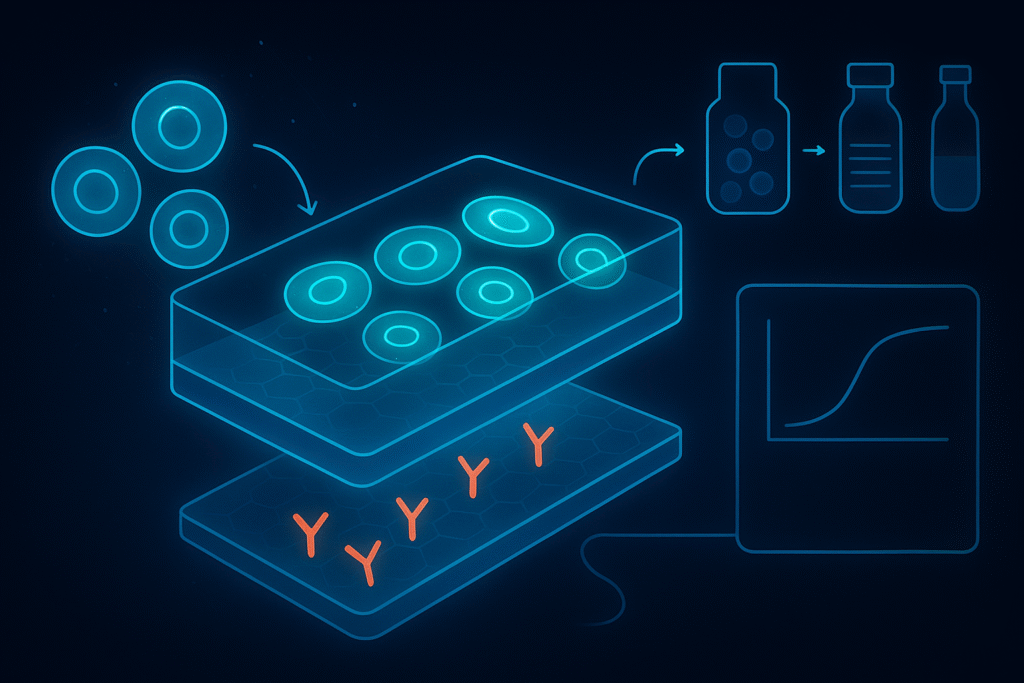Monoclonal antibodies are vital tools in modern medicine, used to treat everything from cancer to autoimmune diseases. Producing them efficiently, however, remains a challenge. Scientists at the Terasaki Institute for Biomedical Innovation have developed a new biosensing platform that could revolutionize how these antibodies are manufactured. The system allows researchers to monitor antibody secretion from cells in real time, making it easier to identify the most productive cell lines.
The platform combines a photonic crystal biosensor with a microtranswell chip, enabling precise tracking of antibody output from hybridoma cells. This setup reduces the need for traditional end-point assays, which are slower and less accurate. With the new system, researchers can detect high-secreting clones within an hour, streamlining the selection process and improving manufacturing efficiency.
Dr. Vadim Jucaud, who led the project, emphasized that this technology could lower production costs and make life-saving therapies more accessible. By identifying the most efficient “powerhouse” cells early in the process, manufacturers can scale up production faster and with fewer resources. The biosensor’s design also minimizes culture volume and concentrates antibodies, further enhancing its utility in both research and industrial settings.
The global demand for monoclonal antibodies is enormous, with sales exceeding $240 billion in 2024. Innovations like this are essential to meet that demand while keeping costs manageable. The Terasaki team believes their platform will support not only large-scale manufacturing but also fundamental research into antibody behavior and cell biology.
This advancement highlights the power of combining microfluidics and biosensing to solve real-world problems. As the technology moves toward commercialization, it could help expand access to critical treatments for patients around the world.
Article from the Terasaki Institute: Advancing Monoclonal Antibody Biomanufacturing: Using a Novel Label-Free Biosensing Platform
Abstract in Biosensors and Bioelectronics: Real-time and label-free monitoring of monoclonal antibody secretion rates using a PC-TIR biosensor

